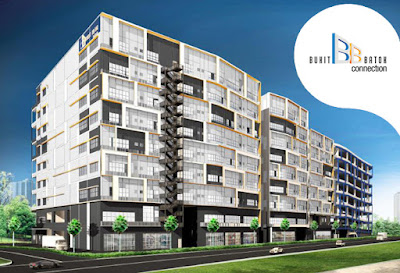UPDATED:
It is an increasingly common sight these days in the heartlands:
Spanking new mixed-use developments with rows and rows of empty shop spaces plastered with posters and banners screaming “For Rent” or “For Sale”.
From Kensington Square along Upper Paya Lebar Road and Novena Regency to The Midtown @ Hougang and MacPherson Mall, to name a few...
Source: TODAY
----------------------------------------------------------------------------
I am a responsible investor and does my own homework before making any investment, so I will not make you responsible for any decisions I make.
I know that you have invested in real estate before, therefore, I would like to seek you help for an issue.
So as most speculators who have made money speculating on real estate, my father made the mistake of not doing enough homework, not filtering out market noise (mostly the real estate agents), thinking that property prices will go up forever and not position sizing.
He bought it in 2010 or 2011, before the building was constructed.
My father has been paying the monthly management fee (about $700/month), annual property tax (no idea how much) and not to mentioned the initial stamp duties and other fees associated with purchasing a property in Singapore.
However, if you add the fees and taxes of both properties, my father hardly makes any money.).
Unfortunately, my father made the purchases before I knew anything about investments (not like he will listen to me though).
Any ways to get rid of the property or anything that we can do cut/reduce the losses?
 |
| Taken from a website promoting the mall to investors. |
AK says:
Remember what you say here hor.
Indemnity form signed. ;)
OK, fact is nobody knows for sure what the future might bring.
What we know for sure is the now and the present.
The only people who seem to know (the future) for sure are the property agents especially when they want to sell us something. ;p
If we had bought into a piece of property thinking or hoping that the price will go up in future, we are more speculators than investors.
Remember my blog post on the two questions we should ask if we are speculating in properties?
It is not only whether the property offers value for money.
We should also ask if we have deep pockets. (See related post #2.)
It seems to me that your dad does not have deep pockets and he is suffering from a double whammy because the property wasn't value for money.
I have a friend in a similar situation and it is causing a serious strain on his family's finances.
I found out recently when I (being kaypoh) asked him why he seemed so cash strapped when his job pays reasonably well.
He bought a property and it is not generating cash flow.
Instead of an asset, he got a liability.
I told him he would be better off disposing it.
"What if the price goes up in future?"
Alamak.
I told him I don't know what is going to happen in future but I see what the situation is doing to him now.
Fortunately, his wife agreed that it would be best to dispose of the "asset" even at a loss.
Don't bite off more than we can chew.
If we bit off more than we can chew, we would do well to spit it out or else we might choke.
Of course, some handle choking better than others.
Quite a few could choke to death.
Best wishes,
AK
P.S. The property which the reader's dad bought is not in Alexandra Mall.
It is in another part of Singapore.
Not revealing the location of the property in question, I am just using Alexandra Mall as an example.
Yes, there are quite a few of these "promising" malls which were marketed to retail investors in Singapore in recent years.
Related posts:
1. Nobody cares more about our money...
2. Two questions we should ask...
3. Disastrous investments in property...




























